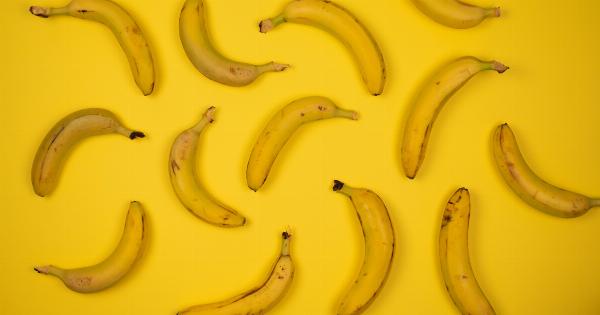Eating low-calorie foods is one of the best ways to stay healthy and keep your weight under control. But the problem is that many people don’t know what foods to choose.
That’s why we’ve put together this list of 20 low-calorie foods that you can eat all day long. These foods are not only healthy, but they’re also delicious and will keep you feeling full and satisfied.
1. Broccoli
Broccoli is a great source of fiber and vitamins. One cup of chopped broccoli contains only 55 calories and 6 grams of fiber. You can steam broccoli or add it to salads for a healthy and low-calorie lunch or dinner.
2. Carrots
Carrots are a tasty and nutritious snack that you can eat anytime. One large carrot contains only 30 calories and is high in vitamins A and C. You can eat them raw or roasted for a delicious and low-calorie treat.
3. Cucumbers
Cucumbers are another great option for a low-calorie snack. One medium-sized cucumber contains only 16 calories and is high in water content, making it a great hydrating option during the summer months.
4. Grapefruit
Grapefruit is a citrus fruit that is low in calories and high in vitamin C. Half a grapefruit contains only 52 calories, making it a perfect breakfast option that will keep you feeling full and satisfied.
5. Greek Yogurt
Greek yogurt is a great source of protein and is low in calories. One cup of plain Greek yogurt contains only 130 calories and 23 grams of protein. You can add fruit or honey for a delicious and low-calorie snack.
6. Grapes
Grapes are a tasty and low-calorie fruit that you can eat anytime. One cup of grapes contains only 62 calories and is high in antioxidants. You can add grapes to salads or eat them as a snack for a healthy and delicious treat.
7. Kale
Kale is a nutrient-dense leafy green that is low in calories. One cup of kale contains only 33 calories and is high in vitamins A, C, and K. You can add kale to salads or smoothies for a nutritious and low-calorie meal.
8. Cauliflower
Cauliflower is a versatile and low-calorie vegetable that you can eat in many different ways. One cup of chopped cauliflower contains only 27 calories and is high in vitamins C and K.
You can roast or steam cauliflower or add it to soups and stews for a delicious and healthy meal.
9. Oranges
Oranges are a citrus fruit that is low in calories and high in vitamin C. One large orange contains only 86 calories and is a great source of dietary fiber. You can eat oranges as a snack or add them to salads for a delicious and low-calorie meal.
10. Popcorn
Popcorn is a low-calorie snack that you can eat anytime. One cup of air-popped popcorn contains only 31 calories and is a good source of fiber. You can add seasonings like garlic powder or nutritional yeast for a tasty and low-calorie snack.
11. Quinoa
Quinoa is a nutritious and low-calorie grain that is high in protein and fiber. One cup of cooked quinoa contains only 222 calories and is a great source of vitamins and minerals.
You can add quinoa to salads or use it as a base for a healthy and low-calorie meal.
12. Raspberries
Raspberries are a tasty and low-calorie fruit that is high in antioxidants. One cup of raspberries contains only 64 calories and is a good source of fiber. You can add raspberries to smoothies or eat them as a snack for a delicious and low-calorie treat.
13. Spinach
Spinach is a leafy green that is low in calories and high in vitamins and minerals. One cup of spinach contains only 7 calories and is a good source of iron and vitamin K.
You can add spinach to salads or use it as a base for a low-calorie, nutritious smoothie.
14. Strawberries
Strawberries are a low-calorie fruit that is high in vitamin C. One cup of strawberries contains only 49 calories and is a good source of fiber. You can add strawberries to smoothies or eat them as a snack for a delicious and healthy treat.
15. Tomatoes
Tomatoes are a versatile and low-calorie vegetable that you can eat in many different ways. One medium-sized tomato contains only 22 calories and is high in vitamins A and C.
You can add tomatoes to salads or use them as a base for a healthy and low-calorie pasta sauce.
16. Watermelon
Watermelon is a low-calorie fruit that is high in water content, making it a great hydrating option during the summer months. One cup of watermelon contains only 46 calories and is a good source of vitamin C.
You can add watermelon to smoothies or eat it as a snack for a delicious and refreshing treat.
17. Zucchini
Zucchini is a versatile and low-calorie vegetable that you can use in many different ways. One cup of chopped zucchini contains only 20 calories and is high in vitamins C and A.
You can roast or sauté zucchini or add it to soups and stews for a delicious and healthy meal.
18. Artichokes
Artichokes are a low-calorie and nutrient-dense vegetable that is high in fiber. One medium-sized artichoke contains only 60 calories and is a good source of vitamin C.
You can add artichokes to salads or use them as a base for a healthy and low-calorie dip.
19. Beets
Beets are a low-calorie and nutrient-dense vegetable that is high in fiber and vitamins. One cup of cooked beets contains only 59 calories and is a good source of folate and potassium.
You can add beets to salads or use them as a base for a healthy and low-calorie soup.
20. Brussels sprouts
Brussels sprouts are a low-calorie and nutrient-dense vegetable that is high in fiber and vitamins. One cup of steamed Brussels sprouts contains only 56 calories and is a good source of vitamin C and folate.
You can roast or sauté Brussels sprouts or add them to soups and stews for a delicious and healthy meal.




























